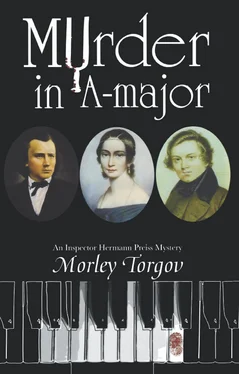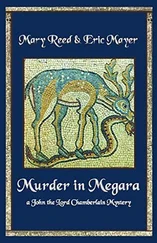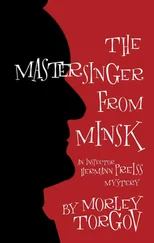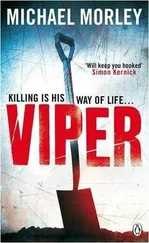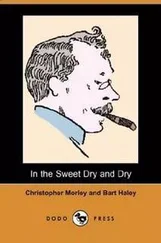Morley Torgov - Murder in A-Major
Здесь есть возможность читать онлайн «Morley Torgov - Murder in A-Major» весь текст электронной книги совершенно бесплатно (целиком полную версию без сокращений). В некоторых случаях можно слушать аудио, скачать через торрент в формате fb2 и присутствует краткое содержание. Жанр: Исторический детектив, на английском языке. Описание произведения, (предисловие) а так же отзывы посетителей доступны на портале библиотеки ЛибКат.
- Название:Murder in A-Major
- Автор:
- Жанр:
- Год:неизвестен
- ISBN:нет данных
- Рейтинг книги:5 / 5. Голосов: 1
-
Избранное:Добавить в избранное
- Отзывы:
-
Ваша оценка:
- 100
- 1
- 2
- 3
- 4
- 5
Murder in A-Major: краткое содержание, описание и аннотация
Предлагаем к чтению аннотацию, описание, краткое содержание или предисловие (зависит от того, что написал сам автор книги «Murder in A-Major»). Если вы не нашли необходимую информацию о книге — напишите в комментариях, мы постараемся отыскать её.
Murder in A-Major — читать онлайн бесплатно полную книгу (весь текст) целиком
Ниже представлен текст книги, разбитый по страницам. Система сохранения места последней прочитанной страницы, позволяет с удобством читать онлайн бесплатно книгу «Murder in A-Major», без необходимости каждый раз заново искать на чём Вы остановились. Поставьте закладку, и сможете в любой момент перейти на страницу, на которой закончили чтение.
Интервал:
Закладка:
“I beg your pardon?”
“Just a quotation…from some poem I came across. About Liszt…did I not hear…yes, Johannes informed me…he'd gone off to some monastery…trying to discover God, was it?”
“He supposedly found God,” I reported, “during the better part of a year spent with some holy order. I've forgotten exactly where.”
“Let me guess,” Schumann said, “it must have been at the Church of the Reluctant Virgin. Be honest, Preiss; you don't imagine for a moment Liszt has really changed.”
“Oh but he has , Maestro,” I said. “He gave a recital recently in Düsseldorf. Played mostly his own compositions. His music is now more solemn, more meditative. And he walks on stage looking like some kind of high priest from the Middle Ages. Dresses in black from neck to toe, hair white now, and longer than before, combed absolutely straight, like a waterfall down his neck and shoulders. Altogether a very spiritual effect.”
Schumann was unconvinced. “Nothing makes a woman swoon like the sight of a man who looks as though he's bearing within him all the pain in the world. Clever devil.”
There followed a long silence, while Schumann looked away from me and sat, hands tightly clasped, gazing out his windows at the distant mountains. There was a kind of vacant contentment in his expression, as though the foothills glowing green in the sun were forever out of bounds for him, and yet it was probably just as well. At least within the four walls of his room there were demons he was familiar with. Out there, who knew what fresh and terrible demons waited for him? Whatever he was thinking at the moment, I thought it best not to interrupt him, but to wait for him to resume conversation.
At last he broke the silence. “Clara does not come to visit me,” he said. His eyes were still fixed on the scenery well beyond the windows. His voice had taken on a hollow sound. “She writes…writes often…and her letters are tender…but she does not come to visit. Johannes has come a number of times, Joachim too, and occasionally they come together. They play for me-there's a fairly decent piano in the sitting room just down the hall-and sometimes I play for them. I played several pieces and songs I've written these past months, and they were very complimentary, Preiss. Johannes says they're some of my best work. But Clara? I can only imagine how painful all this must be for my poor, dear Clara. So she stays away.”
I offered no comment. What was there to say?
“My children are fatherless, Preiss…fatherless. God knows, I think of them often, and wish I could see them. But they are young; they cannot understand, can they?”
I wanted to say that being fatherless was not necessarily a bad thing; after all, during my own childhood, I recalled, the prospect of becoming fatherless held great appeal. I mumbled something banal about children being remarkably resilient, then instantly regretted it. Turning sharply to me, Schumann said, “How would you know, Preiss? You strike me as a man who has managed to insulate himself from anything that is remotely domestic. Your friend, that attractive cellist-”
“Helena Becker-”
“Yes, Frāulein Becker. Am I correct in guessing that you and she are still friends and nothing more?”
“I suppose you could put it that way, Maestro.”
Schumann chuckled. “I'm not surprised to hear this. Not surprised at all.”
“How so?” I asked.
“Because I noticed how smitten you were with Clara. The night you were summoned to our house…and Clara appeared at the top of the stairway, and you caught sight of her.” Schumann chuckled again. “Oh, don't look so embarrassed, man. You may be a police inspector, but you're still flesh and blood. And I may be incarcerated here, but there's enough sanity in me still to understand my wife's appeal. In fact, I have to tell you, it pleased me that you were so obviously taken with her.”
There was no use attempting to lie my way out of this conversation. “I didn't think it was that obvious, Maestro.”
“You see, Preiss, artists can be as discerning as detectives. As a matter of fact, it would not be beyond the realm of possibility that you killed Georg Adelmann, wanting to make it appear like my work in order to get rid of me and have Clara for your own.”
“That is utterly preposterous!”
“Calm yourself,” Schumann said with a slight smile. “Of course, it's preposterous. I was only jesting. Besides, the truth is… I killed Adelmann.”
I smiled back at Schumann. “Now you are really being preposterous, Maestro,” I said. “I have already exhausted this subject with Madam Schumann. I saw with my own eyes the Adelmann papers.”
“Which, according to my dear wife, you committed to a fiery end-”
“Absolutely.”
“You read the papers first, of course?”
“There was no need to. The title page was all I needed to see to be convinced.”
Schumann rose from his chair and went to the small desk. From the centre tray, he withdrew a thick sheaf of papers tied with a ribbon, not unlike the papers and ribbon produced by Madam Schumann on the occasion of my last visit to No. 15 Bilkerstrasse. Without a word, Schumann returned to his seat and handed over the bundle to me.
“What is this?” I asked.
“Well, see for yourself, Preiss,” he said, his eyes fixed on mine, as though he could scarcely await my reaction. “Go ahead, untie it.”
The ribbon slipped off easily, and I glanced at the title page. Quietly I read aloud: “Robert Schumann: A Life In Music.” My eyes went down the page. Again, quietly, I read aloud: “By Georg Adelmann.”
This time I turned the handwritten pages, not just a few at the top but those well down into the manuscript. I looked up at Schumann. “How did you get this? I thought there was only one copy.”
“There was… is …only one copy. This is it.”
“But how?”
There was no need to finish my question.
“That's right, Inspector Preiss. It was I who killed Adelmann and retrieved the monograph. Don't look for signs of remorse on my part. I have none. Besides, there is no necessity for me to demonstrate remorse in the hope of obtaining mercy. After all, Preiss, you cannot bring a madman to justice, can you?”
“One of you…I mean Madam Schumann or you…one of you has to be lying,” I said.
“The Chinese have an excellent proverb,” Schumann said. “‘Life is a search for truth, and there is no truth.’ And now, sir, on that positive note, let me order coffee for us. The cook here makes excellent cream-filled buns. They will fortify you for your return journey to Düsseldorf.”
Schumann and I spent the next hour mostly in silence. I was grateful for the coffee and cream buns, having had little to eat that day. Schumann, on the other hand, seemed indifferent to these refreshments and barely touched his. Instead he sat staring out one of the windows in his room, and I watched as the sun, beginning its late-afternoon descent, carved shadows into the soft features of his face. Finally, not just his face, but all of him was in darkness.
He did not stir when I announced that it was time for my departure nor did he make any response when I said goodbye. I could not be certain if he was even aware that I was leaving.
I was able to catch an early evening train to Düsseldorf and arrived back at my rooms well after midnight Too exhausted to sleep, I poured myself a brandy and sat re-living the events of the long day just concluded. Someday, I told myself, historians, musicologists, surgeons, psychiatrists, novelists-some of them clever, others fools-would attempt to understand what made Robert Schumann the way he was. As for me, I probably should have left well alone. For the truth was that I had travelled to Endenich privately hoping I could hack a clearing, no matter how small, in the thicket that was his mind. The truth was that the man remained as much a mystery now as he did that night when he stood before me unkempt in his robe and slippers and insisted that he was being driven insane.
Читать дальшеИнтервал:
Закладка:
Похожие книги на «Murder in A-Major»
Представляем Вашему вниманию похожие книги на «Murder in A-Major» списком для выбора. Мы отобрали схожую по названию и смыслу литературу в надежде предоставить читателям больше вариантов отыскать новые, интересные, ещё непрочитанные произведения.
Обсуждение, отзывы о книге «Murder in A-Major» и просто собственные мнения читателей. Оставьте ваши комментарии, напишите, что Вы думаете о произведении, его смысле или главных героях. Укажите что конкретно понравилось, а что нет, и почему Вы так считаете.
